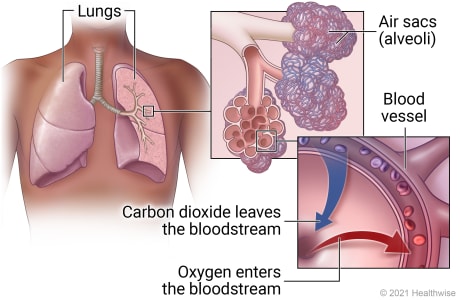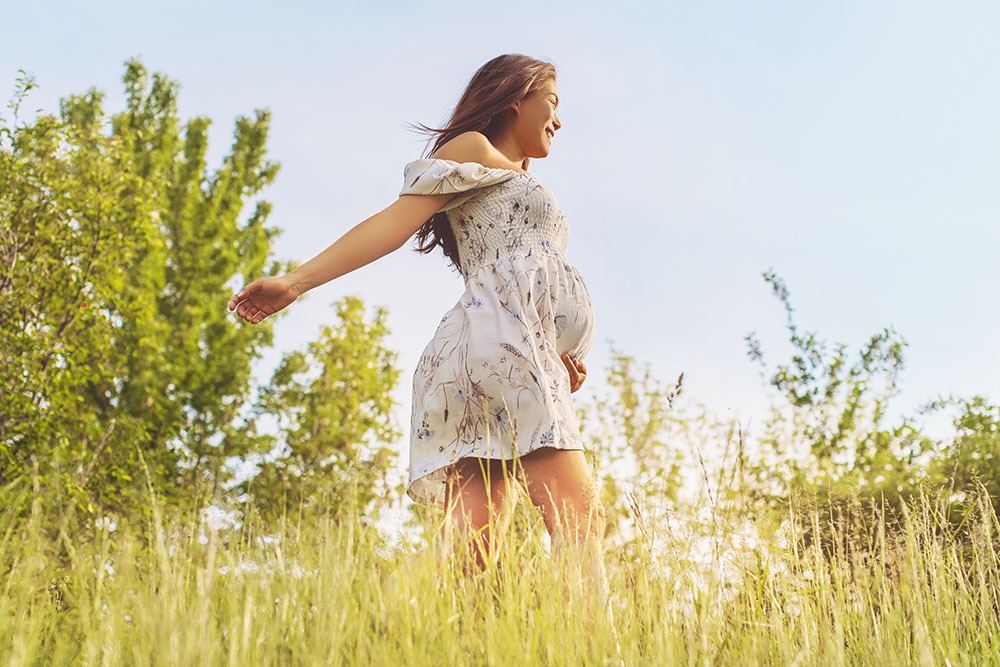Our Health Library information does not replace the advice of a doctor. Please be advised that this information is made available to assist our patients to learn more about their health. Our providers may not see and/or treat all topics found herein.
The lungs

The lungs are the organs in the chest involved in breathing. The lungs are surrounded and protected by the rib cage. The lung on the left side of the body is a little smaller than the lung on the right.
The lungs transfer oxygen from the air to the blood and remove carbon dioxide (a waste material) from the blood. When you breathe in, oxygen moves out of the air sacs (alveoli) of the lungs into the blood, where it is carried to every cell in your body. At the same time, carbon dioxide moves out of your blood and into the air sacs. You push the carbon dioxide out of your lungs when you breathe out. This process is called respiration.
Current as of: July 31, 2024
Author: Ignite Healthwise, LLC Staff
Clinical Review Board
All Ignite Healthwise, LLC education is reviewed by a team that includes physicians, nurses, advanced practitioners, registered dieticians, and other healthcare professionals.
This information does not replace the advice of a doctor. Ignite Healthwise, LLC disclaims any warranty or liability for your use of this information. Your use of this information means that you agree to the Terms of Use and Privacy Policy. Learn how we develop our content.
To learn more about Ignite Healthwise, LLC, visit webmdignite.com.
© 2024-2025 Ignite Healthwise, LLC.



